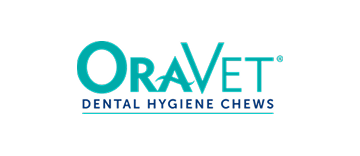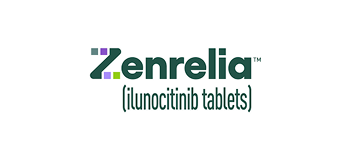October is National Pet Wellness month and it's an ideal time to review our animal companions' health care programs, which aid in maintaining and promoting health and well-being. One of the key components in preventing illness and maintaining health in our pets is to schedule regular veterinary visits to keep your pet's overall health in "check". In addition to routine check-ups, read below for helpful ways to keep your pet healthy:
Prevent a fatal disease
With puppies and kittens, it is especially important to protect against certain core viral infections with timely vaccinations. Therefore, annual microscopic stool exams for parasites should be performed. Because heartworm disease is a threat in most of the states, regular heartworm testing and using monthly heartworm preventatives is recommended.
Due to increasing awareness of flea and tick transmitted diseases, pet owners may want to consider implementing a monthly flea and tick control program as well, including Frontline Plus or NexGard Chewables.
Maintain your pet's oral hygiene
Given the link between periodontal disease and chronic illness in pets, this is also an excellent time to discuss routine dental care with your veterinarian and begin a dental hygiene program. Over 3/4 of adult pets have some degree of dental disease, and may need an ultrasonic scaling and cleaning done under sedation. Following such a cleaning, there are some effective dental products that can be used, including C.E.T. Enzymatic Toothpaste and Be Fresh Dental Care Solution that can help in limiting the development of dental tartar.
Keep up with your pet's vaccinations
As pets get older, the need for many vaccinations is lower, however, twice veterinary examinations are recommended each year. This is especially important if animals are experiencing chronic changes in thirst, appetite, weight, or chronic digestive, urinary or respiratory symptoms. In most adult pets I recommend blood wellness testing to check liver, kidney, thyroid and pancreatic function, and to detect early signs of developing disease.
If you are unsure whether your pet is due for his or her next vaccine, check out our Vaccination Schedule.
Have your pet spayed or neutered
Spaying and neutering will help control an already severe pet overpopulation problem, as well as prevent deadly uterine infections, mammary cancer and certain types of prostate disease in male pets. Because of the protective effects of sex hormones on bone and joint health, and certain cancers later in life, I do recommend waiting until pets are sexually mature if possible to spay or neuter.
Feed your pet a healthy and balanced diet
Probably the most important part of a wellness program is putting pets on a "healthy" diet, to help maintain ideal weight. In general, I recommend a fresh diet (if possible) with whole meats or meat meals as main ingredients, as well as those foods with minimal preservatives, by-products, and additives. I advise clients to stay away from cheaper, less digestible protein sources such as corn, wheat, and soy. There is much varied and conflicting evidence on what is this "ideal" diet, but if possible, a "PROPER" homemade balanced diet is probably best.
Requirements will vary depending upon age, breed, and overall health, but it is important for homemade diets to be made correctly to avoid severe nutritional deficiencies and toxicities. If this is not possible, then try feeding trustworthy and reliable minimally processed natural commercial pet foods. For more on pet food, read about the top rated pet foods by our veterinarian. Dr. Dym.
Promote your pet's overall health with supplements
It's recommended that most pet owners supplement their pet's diet with certain supplements to help with overall health and well-being. These recommendations will vary, depending upon age and overall health. Because most foods are processed to a certain degree, I usually suggest an excellent quality multivitamin or whole food supplement. Supplements include Super VitaChews Soft Chews and NutriCal. There is also much scientific evidence on the health benefits of adding omega 3 fatty acid supplements to the diets of pets of all ages. Excellent examples here include Super Pure Omega 3 Bite-Sized Chews and Nordic Naturals Omega 3-Pet.
Give your pet probiotics & antioxidants
In addition, probiotics and enzymes are also essential for digestive and overall health in pets of any age. Examples of good products here include NaturVet Digestive Enzymes Plus Probiotic and Fast Balance-G.I.. Especially as pets age, they are at risk for increased incidence of inflammatory and degenerative diseases, making antioxidants also essential supplements in pets of any age. One of my favorite antioxidants I have used for many years is the product Proanthozone. Proanthozone is also excellent to include as part of a supplement program for middle aged and older dogs and cats prone to joint and spinal disease.
Benefits of joint supplements
Recently I have had much success with this latter product in traditional vet practice. While there is little evidence of glucosamine/chondroitin products preventing arthritis and joint disease, I find that including them as supplements, especially in large breed dogs, may help improve mobility and comfort. I have found the products Super Joint Enhancer and the Glyco-Flex line from Vetri-Science quite effective in practice.
No matter what age your pet is, keeping him or her in good health is key to a long, happy life with you and your family. Take some time for your pet this month and make sure he or she is in tip-top shape!














































